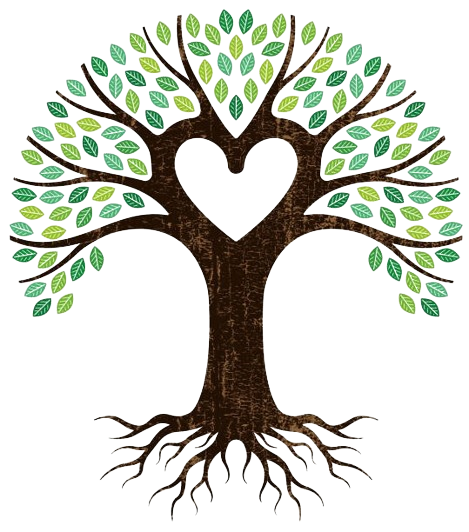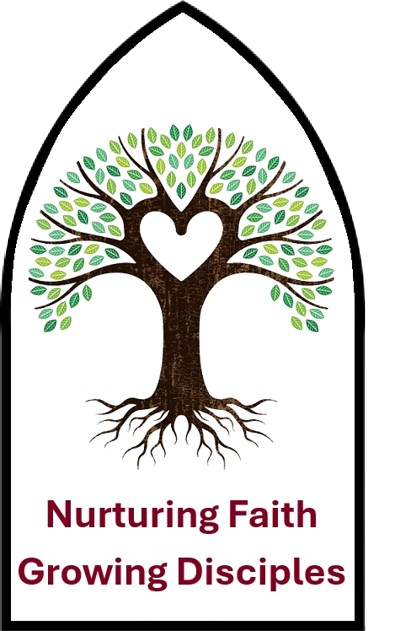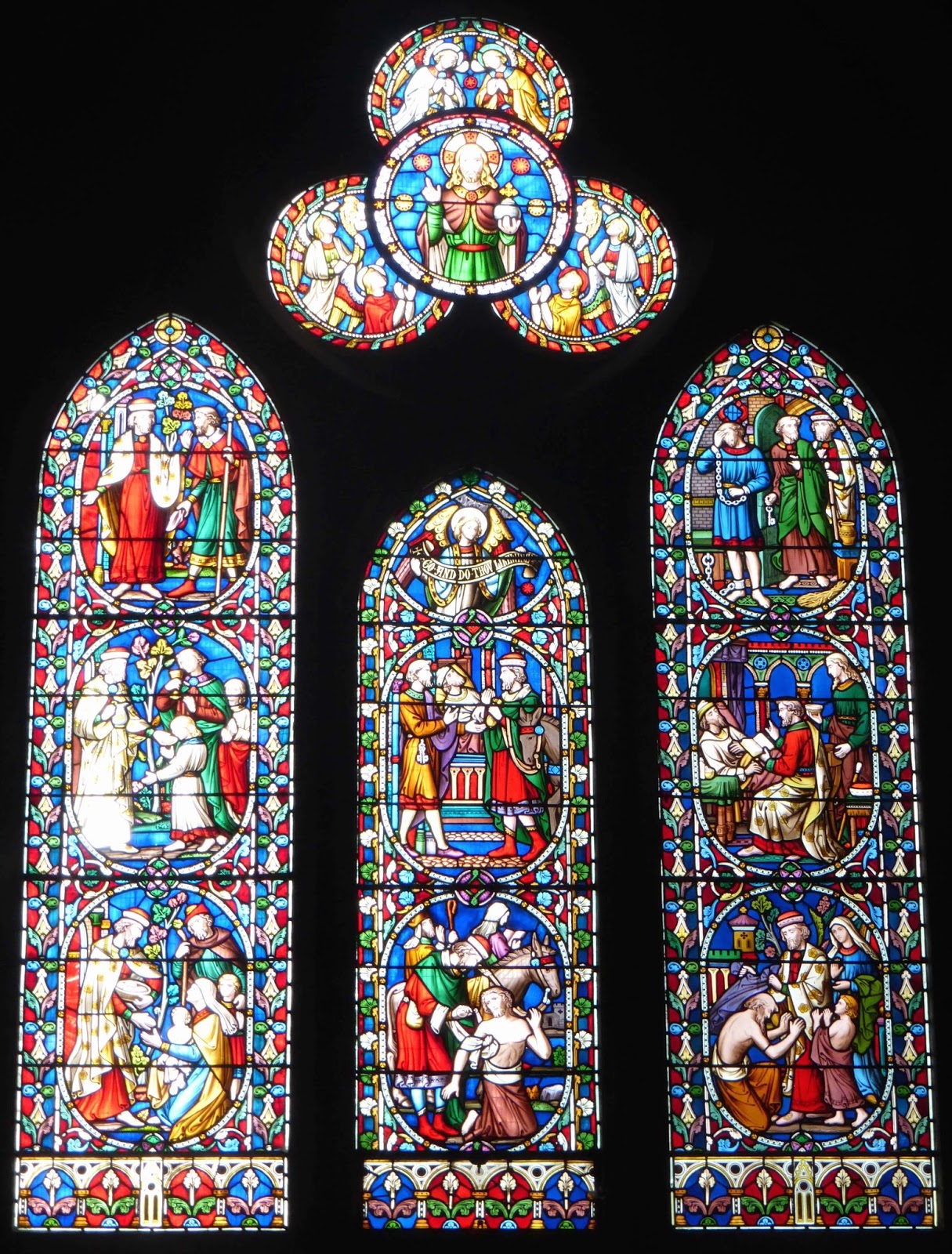
"My friends, these realities are called sacraments because in them one thing is seen, while another is grasped. What is seen is a mere physical likeness; what is grasped bears spiritual fruit."
(St. Augustine, 5th Century, Sermon 272)
A sacrament is the use of material things as signs and pledges of God’s grace, and as a means by which we receive his gifts. There are two parts to a sacrament which are:
- the outward and visible sign, and
- the inward spiritual grace.
Christ in the Gospel has appointed two sacraments for his Church, as needed by all for fulness of life, Baptism, and Holy Communion.
We also acknowledge other rites and ceremonies such as Confirmation, Ordination, Marriage, Confession, and Anointing of the Sick as sacramental.
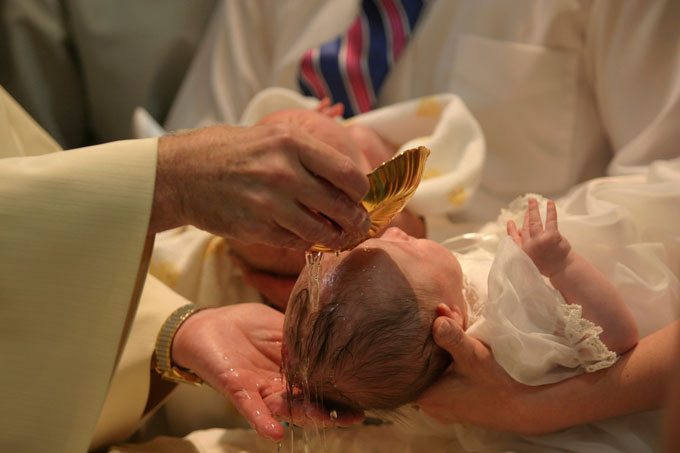
"Go therefore and make disciples of all nations, baptizing them in the name of the Father and of the Son and of the Holy Spirit"
(Matthew 28:19)
Baptism ↑
Baptism is the sacrament in which, through the action of the Holy Spirit, we are’ christened’ or made Christ’s. The outward and visible sign in Baptism is water in which the person is baptized In the Name of the Father, and of the Son, and of the Holy Ghost. The inward and spiritual gift in Baptism is union with Christ in his death and resurrection, the forgiveness of sins, and a new birth into God’s family, the Church.
For more information on arranging a Baptism
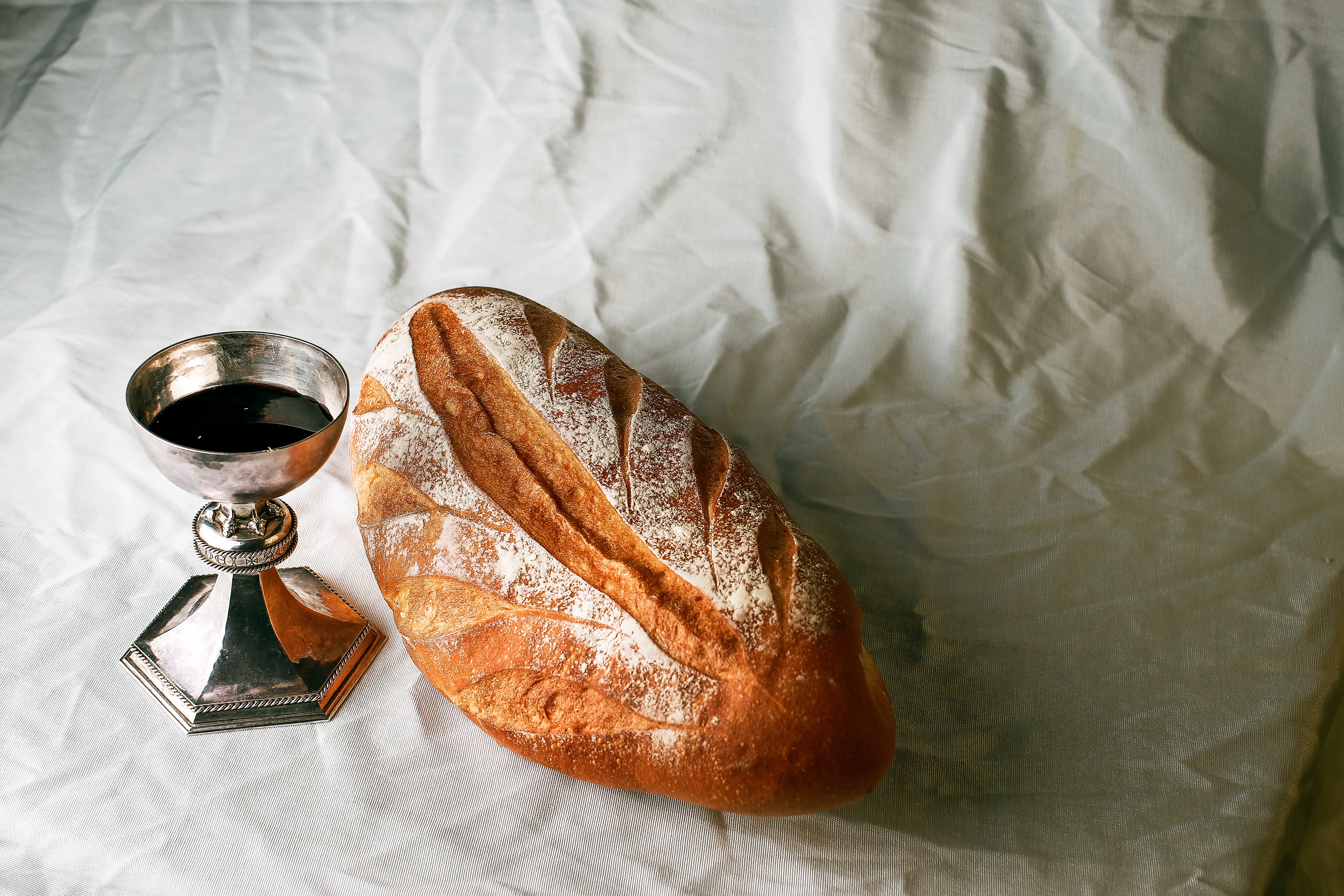
"For I received from the Lord what I also delivered to you, that the Lord Jesus on the night when he was betrayed took bread, and when he had given thanks, he broke it, and said, 'This is my body, which is for you. Do this in remembrance of me.' In the same way also he took the cup, after supper, saying, 'This cup is the new covenant in my blood. Do this, as often as you drink it, in remembrance of me.'”
(1 Corinthians 11:23-25)
Holy Communion ↑
Holy Communion is the Sacrament in which, according to Christ’s command, we make continual remembrance of him, his passion, death, and resurrection, until his coming again, and in which we thankfully receive the benefits of his sacrifice. It is, therefore, called the Eucharist, the Church’s sacrifice of praise and thanksgiving; and also the Lord’s Supper, the meal of fellowship which unites us to Christ and to the whole Church. The outward and visible sign in Holy Communion is bread and wine given and received as the Lord commanded. The inward and spiritual gift in Holy Communion is the Body and Blood of Christ, truly and indeed given by him and received by the faithful. Receiving the Body and Blood of Christ means receiving the life of Christ himself, who was crucified and rose again, and is now alive for evermore. The benefits we receive are the strengthening of our union with Christ and his Church, the forgiveness of our sins, and the nourishing of ourselves for eternal life.
It is required of those who come to HoIy Communion that they have a living faith in God’s mercy through Christ, with a thankful remembrance of his death and resurrection; that they repent truly of their sins, intending to lead the new life; and be in charity with all people. They must also be baptised and, if a child, have gone through preparation for first communion, or if an adult, that they are confirmed. If you are a visitor from another denomination we ask only that you are baptised and in good standing with your Church.
For more information on our service times
